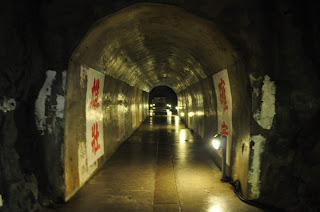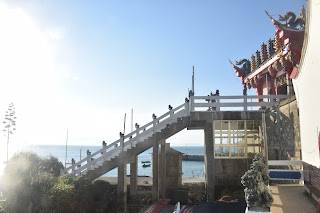A half of the term has passed so far, and I’m
still on the way of finding the direction in the unlimited field and knowledge.
This time, I’d like to simply share something happened in these days and what I
might change in my research topic. Maybe, I’ll be the first one among all of us
to change the topic dramatically.
The first meeting with Joska and Alice was already
few weeks ago. At that time, I was still sticking to the proposal as the last
post here. Naturally, they tried to figure out some helpers who can connect me
to my research and field. Alice recommended a professor, Jing-Jing in Minzu
University of China in Beijing to me. She once came to CEU for scholar exchange
so that they both knew her. Actually, “Minzu” itself means “ethnicity” in
Chinese, which shows the significance of the university in ethnicity studies
and polices in China. Although Jing-Jing is a professor in history, she agreed to
find related research programs and groups in heritage issues, especially concerning
ethnic problems. It looks like it is a good beginning, while there is always a
worry keeping in my mind.
Seeing everyone’s research topic is based
on their personal experiences in their hometown, I keep wondering if I can find
a topic in my hometown as well. Although the fact that the concept and policies
of heritage in Taiwan is really just initial makes it difficult to form a research
question, I deeply believe that there are a lot of things which can be heritage
in Taiwan. This is the most tremendous dilemma I face in my decision. I keep
trying to form a complete question but I find out that it is quite difficult.
In the academic field of Taiwan, there are some discussions concentrating on
the potential of places to become world heritage, and it’s all. Nothing more
can be discussed further.
 |
The highest authoriry of cultural heritage in Taiwan
which cannot participate much in the international community
|
After the lectures given by Joska in these
weeks, I discover that “historic layers” is a critical concept in the study of
heritage. When I start to consider somewhere which can be analyzed by this
concept, Matsu islands comes up to my mind. Interestingly, I just visited there
this summer after I had submitted the project proposal last year. So far I
still cannot forget the awestruck landscape, monuments and aura in the region.
I turn to the related academic discussion before, and as a result, the issues
of the culture of Matsu islands has boomed for several years. In 2017, International
Conference “Matsu: The Island of War and Peace” was held by international
academic communities. Scholarship from different subjects has a variety of ideas
to think and imagine the islands. In the field of heritage studies, the focus
was put on the interpretation of war memories, while I think it is not enough
for the whole figure of the place.
 |
Landscape of Dongju Island, which includes the layer of
the traditional settlement, the colonial history and the war memories
|
Now I have a more concrete field which I
learn more about already, and the history and memories of the field is more
related to my personal experience and identity, although it is still somehow
distant to me. Then, I have to modify my research framework to fit the field,
which I’ll need to do more work by myself. The place-making process would still
be concerned in my research, but the significance of historic layers should be
introduced in the backbone of my thesis. Besides war memories, how the locals
recognize and cope with different levels of history? What the relationship
between Matsu islands and Taiwan change in different periods? The similar
question can be applied to every heritage site, but the difference of answers
is the most valuable thing in the academic research.
Finally, I realize that I’m still not the
kind of anthropologist who can excitedly do research in a distant and
unfamiliar place. To do something more connected to myself is anyway more
attractive and reflexive to me. Nevertheless, the degree of distance and
familiarity is actually controlled by ourselves. The importance of research is
always to dig out new findings in the world, which can be as near as our daily
lives, or as far as the antipode of where you are. As for what is Matsu islands
about, let me leave it in later posts or presentation in the class! Enjoy the
pictures I just took first!
In the end, I’d like to list something I
should promptly do in following weeks.
1.
To discuss this modification
with Joska and Alice.
2.
To clarify how to cope with the
case if the state (Taiwan) doesn’t do much, which is the biggest difference to
my previous proposal.
3.
To reconsider the partnership
with Minzu University of China (internship, conference, etc.)
 |
| Andong Tunnel in Dongyin Island, showing the evidence war memory |
 |
| Sanhe Temple in Beigan Island, showing the traditional religion and architecture |
 |
| Iron Fort in Nangan Island, showing the fortification of the war period |

No comments:
Post a Comment
Don't forget to sign your comments!